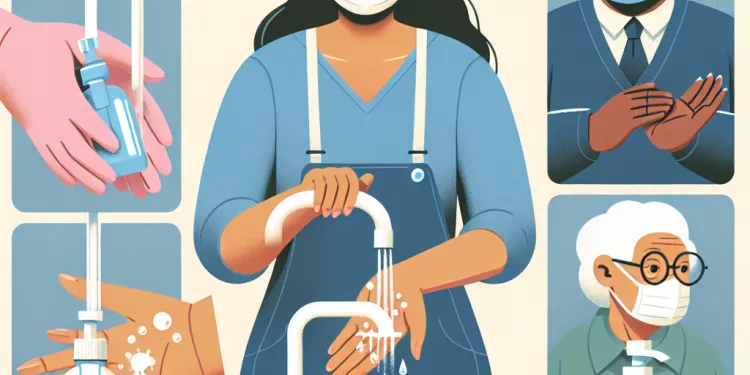
Find Help
More Items From Ergsy search
-
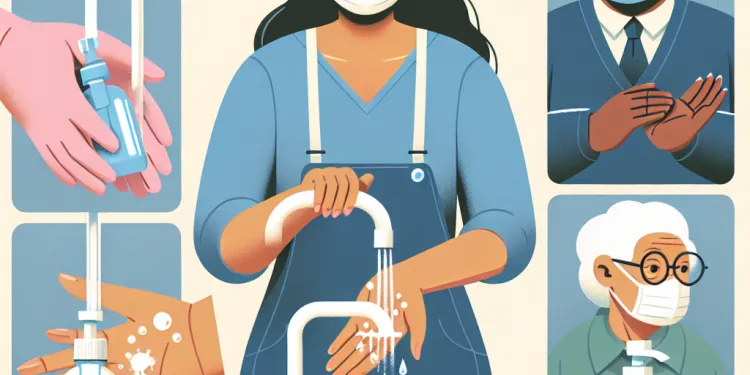
How can I prevent spreading my cold to others?
Relevance: 100%
-
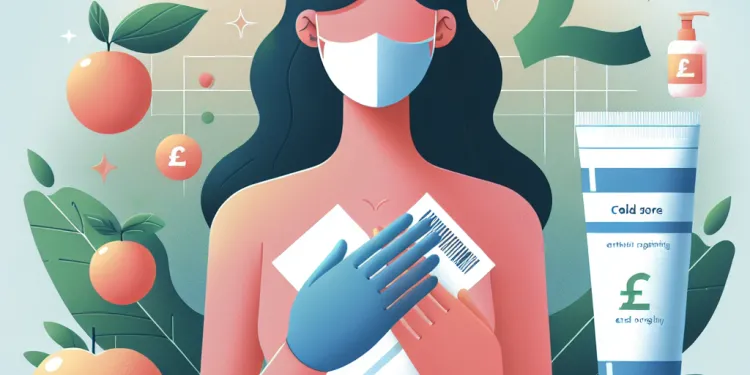
How can I prevent cold sores?
Relevance: 75%
-

Can cold weather cause a cold?
Relevance: 72%
-

Can orange juice help prevent colds?
Relevance: 70%
-

Are cold sores contagious?
Relevance: 69%
-

Is there a cure for cold sores?
Relevance: 66%
-

How are cold sores transmitted?
Relevance: 64%
-
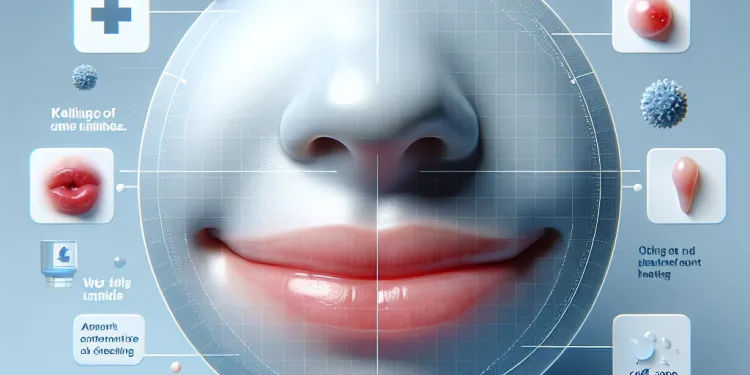
What are Cold Sores?
Relevance: 64%
-

How can I prevent the spread of impetigo?
Relevance: 62%
-
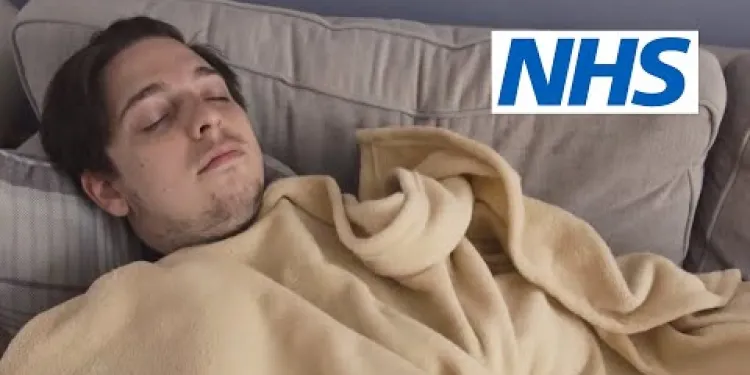
How to treat a cold | NHS
Relevance: 59%
-

How long does a common cold typically last?
Relevance: 59%
-

What causes cold sores?
Relevance: 58%
-
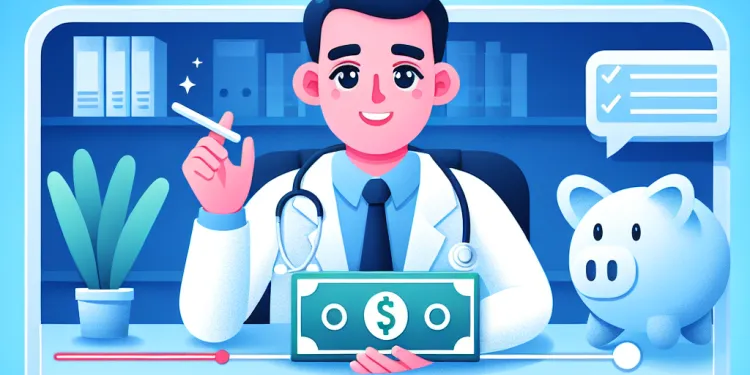
Should I see a doctor for a cold?
Relevance: 57%
-

Is it safe to exercise with a cold?
Relevance: 56%
-

What are the symptoms of a cold sore?
Relevance: 55%
-
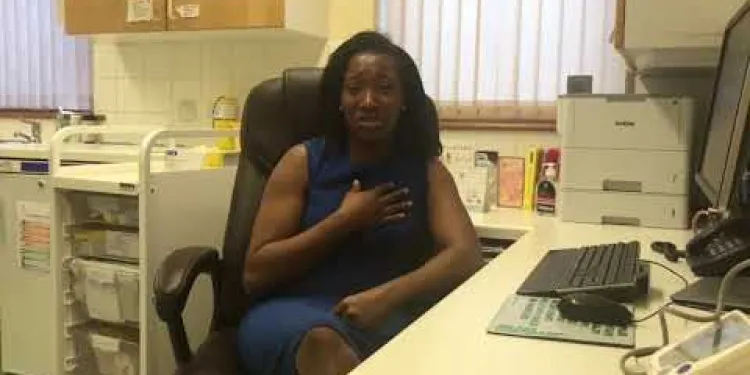
What should you do if you have a cough or cold?
Relevance: 54%
-

Is there a way to cure a cold quickly?
Relevance: 54%
-
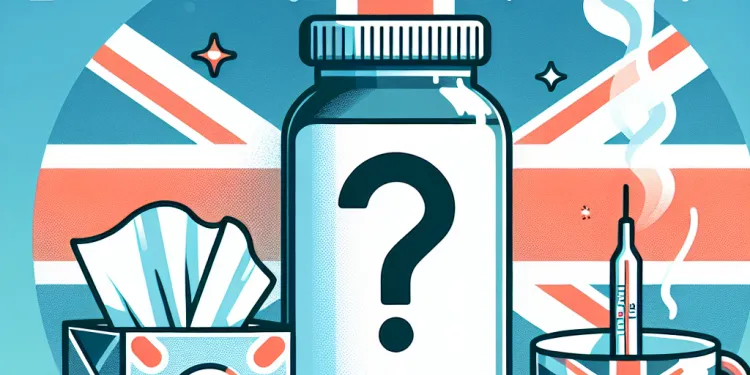
Can I take antibiotics for a cold?
Relevance: 54%
-
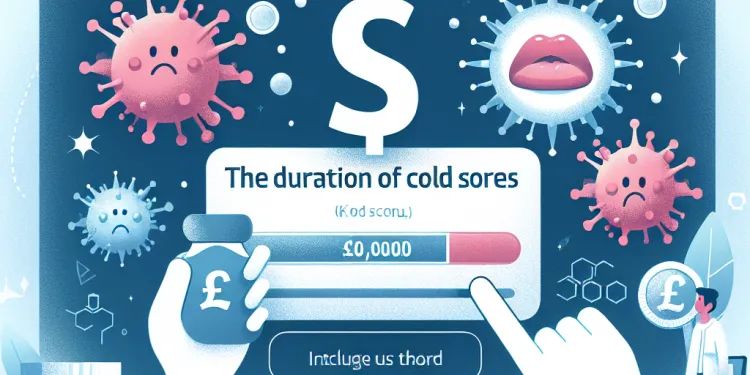
How long do cold sores last?
Relevance: 54%
-

What triggers a cold sore outbreak?
Relevance: 53%
-

How can healthcare providers prevent the spread of flesh-eating bacteria in hospitals?
Relevance: 52%
-

How to Treat a Common Cold
Relevance: 52%
-

Is Vitamin C effective against colds?
Relevance: 51%
-
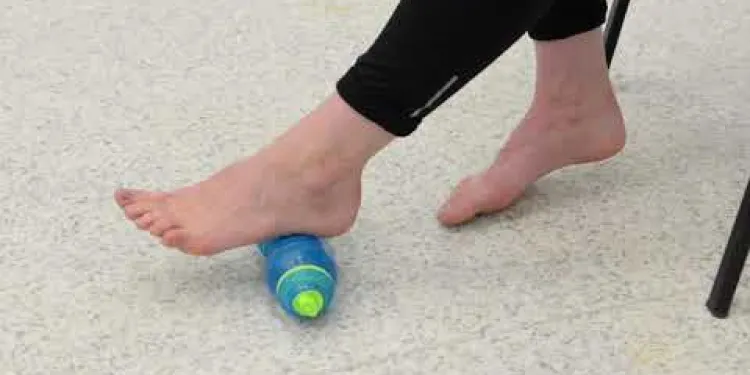
Plantar Fascia Cold Therapy
Relevance: 51%
-

How is measles spread?
Relevance: 50%
-

How is chickenpox spread?
Relevance: 50%
-
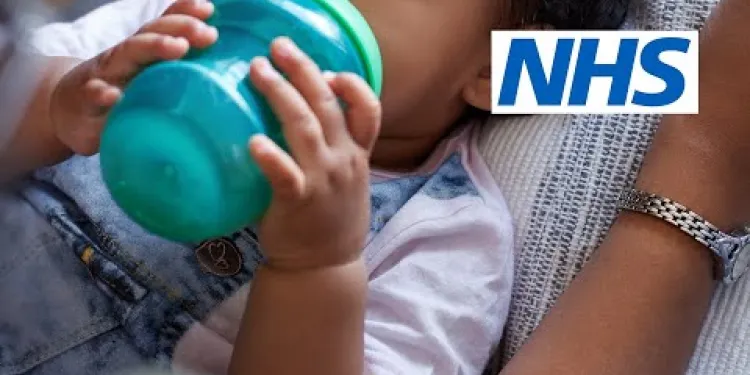
How do I treat my child's cold? (9 - 30 months) | NHS
Relevance: 49%
-

Is malaria spread by mosquitoes in the UK?
Relevance: 48%
-

What are the common symptoms of a cold?
Relevance: 48%
-

Can I use a humidifier to help with my cold symptoms?
Relevance: 48%
-

How is norovirus spread?
Relevance: 48%
-

How is viral meningitis spread?
Relevance: 48%
-

Is it safe to take cold showers during a heatwave?
Relevance: 47%
-
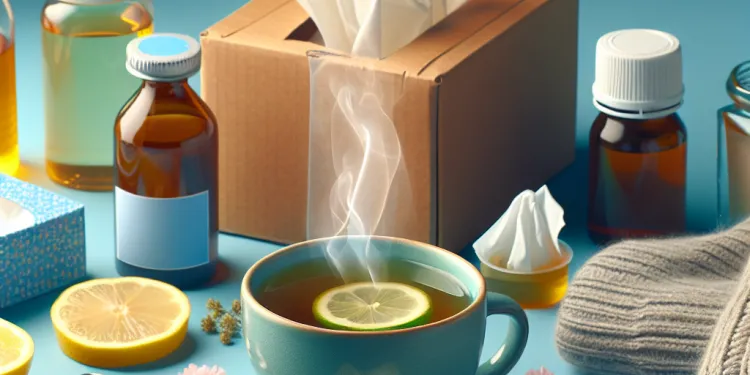
How can I treat a cold at home?
Relevance: 44%
-
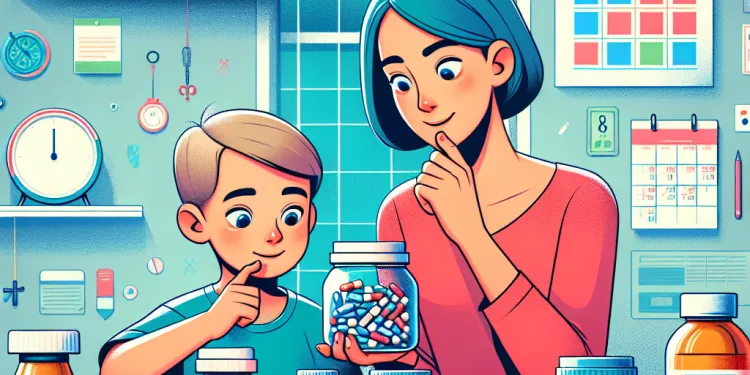
Can children take the same cold medications as adults?
Relevance: 44%
-
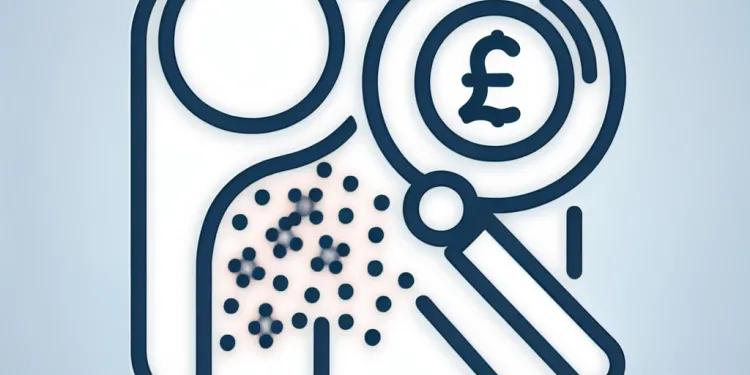
Can impetigo spread to other parts of my body?
Relevance: 44%
-

Is there a risk of yellow fever being spread by mosquitoes in the UK?
Relevance: 43%
-

Honey 'as good as antiviral creams' for cold sores | NHS Behind the Headlines
Relevance: 43%
-

Is there a risk of global spread if measles cases rise in the UK?
Relevance: 42%
-

Can nettle rash spread from person to person?
Relevance: 42%
How to Prevent Spreading Your Cold to Others
When you're struck by a cold, it’s easy to pass the virus on to those around you. Taking careful steps to protect others is essential, especially in close-knit environments such as offices, schools, or homes. Below, we will go through some effective methods to prevent spreading your cold while you recover.
Practice Good Hygiene
The simplest and most effective way to prevent spreading a cold is by maintaining excellent hygiene. Regularly wash your hands with soap and water, especially after coughing, sneezing, or blowing your nose. Use an alcohol-based hand sanitizer if soap and water are unavailable. Additionally, avoid touching your face, particularly your eyes, mouth, and nose, to minimize the spread of germs.
Use Tissues When Sneezing or Coughing
Always use a tissue to cover your mouth and nose when you cough or sneeze. Dispose of used tissues immediately in a bin, and wash your hands afterward. If a tissue isn’t available, cough or sneeze into the crook of your elbow to contain the droplets and reduce virus transmission.
Avoid Close Contact with Others
Ensure you maintain a reasonable distance from others to minimize the risk of transmission. Stay at home and rest if possible, especially during the first couple of days when you are most contagious. Postpone social gatherings and notify your workplace or school to discuss working from home options if applicable.
Disinfect Frequently Touched Surfaces
Regularly clean and disinfect surfaces that you frequently touch, such as doorknobs, light switches, and mobile phones. This reduces the likelihood of others coming into contact with the virus on these surfaces.
Seek Medical Advice if Necessary
If your symptoms worsen or persist, it may be advisable to seek advice from a healthcare professional. In the UK, you can contact NHS services for guidance on managing your symptoms and reducing the risk of spreading the illness further.
By taking these precautions, you can significantly decrease the chances of spreading your cold to others and contribute to a healthier environment for everyone around you. Rest assured, your thoughtfulness and responsible actions are valued by those you strive to protect.
How to Stop Giving Your Cold to Others
When you have a cold, you can easily give it to people near you. It is important to be careful and keep others safe, especially at work, school, or home. Here are some simple ways to stop spreading your cold while you get better.
Keep Clean
The best way to stop spreading a cold is to keep clean. Wash your hands often with soap and water, especially after you cough, sneeze, or blow your nose. If there's no soap and water, use hand sanitizer. Do not touch your face, like your eyes, mouth, and nose, to stop germs from spreading.
Use Tissues for Coughs and Sneezes
Always use a tissue to cover your mouth and nose when you cough or sneeze. Throw the tissue in the bin right away and wash your hands. If you don't have a tissue, cough or sneeze into your elbow to stop the germs from spreading.
Stay Away from Others
Try to keep away from people so you don't pass on the cold. Stay home and rest if you can, especially at the start when you can spread it more easily. Cancel any plans to meet with others and tell your work or school to see if you can work from home.
Clean Things You Touch Often
Regularly clean things you often touch, like door handles, light switches, and mobile phones. This helps stop others from catching the cold from these things.
Get Help if You Need It
If your cold gets worse or doesn’t go away, talk to a doctor or nurse. In the UK, you can contact NHS for advice on how to manage your cold and stop giving it to others.
By following these steps, you can help stop your cold from spreading to other people. Your care and responsible actions keep everyone around you safer and healthier. Thank you for being considerate!
Frequently Asked Questions
What are the main ways to prevent spreading my cold to others?
The main ways include staying home when you’re sick, covering your mouth and nose with a tissue or your elbow when you cough or sneeze, and washing your hands frequently with soap and water.
Is it necessary to wear a mask if I have a cold?
Wearing a mask can help reduce the spread of viruses, especially in crowded or poorly ventilated areas. It is a good precaution if you're close to others and can't maintain social distancing.
How important is hand hygiene in preventing the spread of a cold?
Hand hygiene is very important. Washing hands regularly with soap and water for at least 20 seconds helps remove germs. If soap and water aren’t available, using an alcohol-based hand sanitiser can be effective.
Can using a tissue really help stop the spread of my cold?
Yes, using a tissue to cover your mouth and nose when you cough or sneeze can catch droplets that may contain viruses, reducing the risk of infecting others.
Should I avoid going to work if I have a cold?
Yes, if possible, you should stay home to rest and prevent spreading the virus to colleagues. Many employers in the UK offer sick leave policies that allow for this.
What role does ventilation play in preventing the spread of a cold?
Good ventilation is important as it helps dilute and disperse virus particles in the air, reducing the risk of transmission, especially in indoor environments.
How can I remind others around me to maintain their distance if I'm not feeling well?
Politely informing people that you're not feeling well and asking them to keep a safe distance is usually effective. Most people will understand and appreciate the caution.
Does disinfecting surfaces help prevent the spread of colds?
Yes, regularly disinfecting frequently-touched surfaces like doorknobs and electronics can help minimise the spread of viruses.
Are there specific over-the-counter medications recommended to manage my symptoms?
Over-the-counter medications such as paracetamol or ibuprofen can help relieve symptoms, but they don’t prevent you from spreading the virus to others.
Can increasing my fluid intake help with recovery from a cold?
Staying hydrated is important as it helps your body fight off the infection and can ease symptoms. It doesn’t directly prevent spreading the virus, but it aids in recovery.
Should I avoid using public transport if I have a cold?
Yes, it is advisable to avoid public transport to reduce the risk of spreading the virus to others, especially during peak times.
Does sharing utensils or food with others increase the risk of spreading a cold?
Yes, sharing utensils or food can easily spread viruses. It’s best to avoid sharing these items when you're sick.
Is it effective to use hand sanitiser at home to prevent cold transmission?
Hand sanitiser can be a good supplementary measure, but washing hands with soap and water is generally more effective, particularly at home.
Can I prevent spreading a cold by boosting my immune system with vitamins?
While maintaining a healthy immune system can generally help your recovery, there is no strong evidence that taking extra vitamins will prevent spreading a cold.
What precautions should be taken when visiting vulnerable individuals?
When visiting vulnerable individuals, it’s best to avoid close contact, wear a mask, maintain good hand hygiene, and ensure the space is well-ventilated.
How can I stop my cold from making other people sick?
Here are some ways to stop germs from spreading:
1. Stay at home if you feel sick.
2. Use a tissue or your elbow to cover your mouth and nose when you cough or sneeze.
3. Wash your hands a lot with soap and water.
Do I need to wear a mask if I have a cold?
If you have a cold, should you wear a mask?
Wearing a mask can help stop germs from spreading to others. You might want to use tissues to cover your mouth and nose when you cough or sneeze.
If you feel unsure about wearing a mask, you can ask a doctor or adult for help.
Wearing a mask can help stop the spread of germs, especially in busy places or where the air does not move well. It is a smart thing to do if you are near other people and cannot stay away from them.
Why is washing hands important to stop a cold?
Washing hands helps stop you from getting a cold.
Wash your hands with soap and water.
This stops germs from spreading.
Use hand sanitizer if there's no water.
Support:
- Use pictures to show how to wash hands.
- Ask someone to help you wash your hands.
Keeping hands clean is very important. Wash your hands with soap and water for at least 20 seconds. This helps get rid of germs. If you can't use soap and water, try using a hand sanitiser with alcohol.
Can a tissue help stop spreading my cold?
Yes, use a tissue to cover your mouth and nose when you cough or sneeze. This helps catch any germs, so you don’t spread them to other people.
Is it okay to go to work if I have a cold?
If you have a cold, it might be a good idea to stay home. This helps stop the germs from spreading to other people.
Here are some things you can do if you have a cold:
- Rest at home so you can feel better faster.
- Drink lots of water or juice.
- Cover your mouth when you cough or sneeze.
- Wash your hands often to keep things clean.
If you are not sure what to do, you can ask a doctor or nurse for advice.
Yes, if you can, stay home to rest. This stops the virus from spreading to people you work with. In the UK, many jobs let you take time off if you are sick.
How does fresh air help stop a cold from spreading?
Fresh air can help keep everyone healthy. Opening windows and doors lets fresh air come in. This pushes out germs that cause a cold. Try to open windows every day.
Here are some things to do:
- Open windows or doors to let fresh air in.
- Use a fan to move the air around.
- Spend time outside to get lots of fresh air.
Markers and arrows can help see where fresh air can come in. Also, pictures might show how air moves through a room.
Good airflow is important. It helps clean the air and spread out virus germs. This makes it safer and helps stop people from getting sick, especially inside buildings.
How can I ask people to keep their distance if I'm sick?
If you're not feeling well, it's important to tell others to stay a little away. Here are some simple ways to ask them:
- Say it nicely: You can say, "I'm not feeling well. Please stand a little farther away."
- Write a sign: Make a sign that says, "Please keep some space. I'm not feeling well."
- Use a signal: You can use a hand gesture to show them to step back.
These ways can help keep everyone safe. You can also use apps or tools on your phone to type and show your message.
If you feel sick, tell people nicely. You can ask them to stay a bit away. Most people will understand and be careful too.
Can cleaning surfaces stop colds from spreading?
Cleaning surfaces can help. Germs can stick to things you touch, like tables and doors. When you clean these, you kill the germs.
Try these helpful tips:
- Use wipes or sprays to clean.
- Wash your hands often.
- Cover your mouth when you cough or sneeze.
These steps can help keep you and others safe!
Yes, cleaning things that people touch a lot, like doorknobs and phones, helps stop germs from spreading.
Can I buy medicine at the store to help me feel better?
You can use medicines from the store like paracetamol or ibuprofen to feel better. But these medicines do not stop you from passing the virus to other people.
Will drinking more water help me get better from a cold?
Drinking enough water is really important. It helps your body get better when you are sick. Water makes you feel better. It doesn’t stop you from spreading germs, but it helps you get well.
Can I use buses and trains if I have a cold?
If you have a cold, try not to use buses or trains. You can make other people sick.
Here are some tips:
- Stay home if you feel unwell.
- If you must go out, cover your mouth and nose with a tissue or your elbow when you cough or sneeze.
- Wash your hands a lot with soap and water.
- If possible, try using a mask to stop germs from spreading.
Yes, it is a good idea to stay away from buses, trains, and other public transport. This helps stop the virus from spreading to other people. Try to avoid going on them when they are very busy.
You can also ask someone you trust for help or use a map app on your phone to find other ways to get around.
Can you catch a cold from sharing spoons or food with other people?
Yes, sharing things like forks, spoons, or food can spread germs easily. It's better not to share these when you're sick.
Does using hand gel at home stop colds from spreading?
Using hand gel can help stop colds from spreading. Wash your hands with soap and water too. This keeps your hands clean. Clean hands make it harder for germs to move from one person to another.
If you sneeze or cough, use a tissue and throw it away. Then wash your hands. This helps stop germs.
You can try using a timer that shows how long to wash your hands. This can help you wash long enough to clean your hands well.
Hand gel can help keep your hands clean, but washing your hands with soap and water works better. This is especially true at home.
Can vitamins stop a cold from spreading?
Will taking vitamins help keep others from getting my cold?
Boosting your immune system might help you feel better. But it might not stop a cold from spreading. It's important to wash your hands often and cover your mouth when you cough or sneeze.
Using tissues and staying away from others when you're sick can also help.
For more help, ask a doctor or nurse what to do when you have a cold.
Staying healthy can help you get better when you are sick. But taking more vitamins does not stop you from giving a cold to others.
How can you keep people safe when you visit them?
When you visit people who might get sick easily:
- Don’t get too close.
- Wear a face mask.
- Wash your hands well.
- Open windows or doors to let fresh air in.
These things can help keep everyone safe.
Useful Links
This website offers general information and is not a substitute for professional advice.
Always seek guidance from qualified professionals.
If you have any medical concerns or need urgent help, contact a healthcare professional or emergency services immediately.
Some of this content was generated with AI assistance. We’ve done our best to keep it accurate, helpful, and human-friendly.
- Ergsy carfully checks the information in the videos we provide here.
- Videos shown by Youtube after a video has completed, have NOT been reviewed by ERGSY.
- To view, click the arrow in centre of video.
- Most of the videos you find here will have subtitles and/or closed captions available.
- You may need to turn these on, and choose your preferred language.
- Go to the video you'd like to watch.
- If closed captions (CC) are available, settings will be visible on the bottom right of the video player.
- To turn on Captions, click settings .
- To turn off Captions, click settings again.
More Items From Ergsy search
-

How can I prevent spreading my cold to others?
Relevance: 100%
-

How can I prevent cold sores?
Relevance: 75%
-

Can cold weather cause a cold?
Relevance: 72%
-

Can orange juice help prevent colds?
Relevance: 70%
-

Are cold sores contagious?
Relevance: 69%
-

Is there a cure for cold sores?
Relevance: 66%
-

How are cold sores transmitted?
Relevance: 64%
-

What are Cold Sores?
Relevance: 64%
-

How can I prevent the spread of impetigo?
Relevance: 62%
-

How to treat a cold | NHS
Relevance: 59%
-

How long does a common cold typically last?
Relevance: 59%
-

What causes cold sores?
Relevance: 58%
-

Should I see a doctor for a cold?
Relevance: 57%
-

Is it safe to exercise with a cold?
Relevance: 56%
-

What are the symptoms of a cold sore?
Relevance: 55%
-

What should you do if you have a cough or cold?
Relevance: 54%
-

Is there a way to cure a cold quickly?
Relevance: 54%
-

Can I take antibiotics for a cold?
Relevance: 54%
-

How long do cold sores last?
Relevance: 54%
-

What triggers a cold sore outbreak?
Relevance: 53%
-

How can healthcare providers prevent the spread of flesh-eating bacteria in hospitals?
Relevance: 52%
-

How to Treat a Common Cold
Relevance: 52%
-

Is Vitamin C effective against colds?
Relevance: 51%
-

Plantar Fascia Cold Therapy
Relevance: 51%
-

How is measles spread?
Relevance: 50%
-

How is chickenpox spread?
Relevance: 50%
-

How do I treat my child's cold? (9 - 30 months) | NHS
Relevance: 49%
-

Is malaria spread by mosquitoes in the UK?
Relevance: 48%
-

What are the common symptoms of a cold?
Relevance: 48%
-

Can I use a humidifier to help with my cold symptoms?
Relevance: 48%
-

How is norovirus spread?
Relevance: 48%
-

How is viral meningitis spread?
Relevance: 48%
-

Is it safe to take cold showers during a heatwave?
Relevance: 47%
-

How can I treat a cold at home?
Relevance: 44%
-

Can children take the same cold medications as adults?
Relevance: 44%
-

Can impetigo spread to other parts of my body?
Relevance: 44%
-

Is there a risk of yellow fever being spread by mosquitoes in the UK?
Relevance: 43%
-

Honey 'as good as antiviral creams' for cold sores | NHS Behind the Headlines
Relevance: 43%
-

Is there a risk of global spread if measles cases rise in the UK?
Relevance: 42%
-

Can nettle rash spread from person to person?
Relevance: 42%


